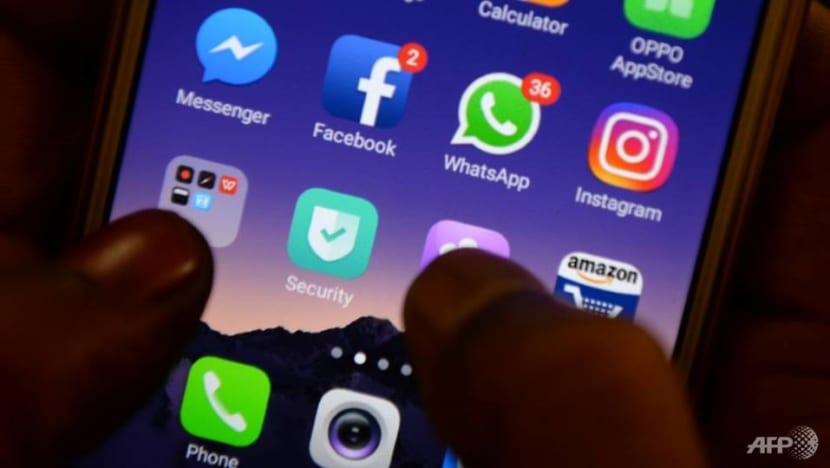CNA Explains: What do Indonesia's new licensing rules mean for tech companies?
While the likes of Google, Facebook and Twitter have complied with the new regulation, there are concerns over privacy and whether innovation will be stifled.

JAKARTA: Indonesia has asked technology companies, both at home and overseas, to register themselves by Wednesday midnight (Jul 27) if they want to continue to operate in the country.
The government has warned that companies that do not sign up in time would be blocked.
As of Wednesday afternoon, just under 9,000 entities – 8,500 of which are local firms – have registered themselves via a website run by the Indonesian Communication and Information Technology Ministry. Among those that have signed up include tech giants Alphabet Inc, Meta Inc and Twitter Inc.
But there are many other technology companies that have not registered and are therefore at risk of being banned from offering their services in the archipelago. Among these companies are some of the world’s biggest e-commerce services, web browsers and social media platforms.
The new licensing regulation applies to local and foreign companies which offer services ranging from search engines, social media, streaming services and fintech to email providers, messaging applications and online games.
Observers are worried that the ministerial regulation on Electronic System Operators will stifle innovation as companies first have to be licensed by the communications ministry before they can start offering their services to users in Indonesia.
Meanwhile, critics warned that the regulation poses a threat to freedom of expression and privacy as it allows law enforcers and government agencies to monitor the platforms and order tech firms to remove content deemed as unlawful.
WHAT THE REGULATION IS ABOUT
Passed in November 2020, the ministerial regulation on Electronic System Operators, known in Indonesia by its abbreviation PSE, requires technology firms to provide a general outline of how their systems work. Companies also need to disclose the type of user personal information that they are storing and processing.
However, the government did not start enforcing this requirement until recently because of the pandemic.
The communications ministry argues that the regulation is just administrative in nature.
“This is just so that we know who is operating digitally in Indonesia and the type of services they provide. Unless (these companies) are committing a corporate crime, they have nothing to fear,” the ministry’s director general for applied information sciences, Semuel Pangerapan said during a press conference last week.
But the regulation also stipulates that technology firms must provide access to law enforcement and government agencies so they can better monitor their platforms.
Government agencies can also order companies to take down content that is violating Indonesian law or deemed to be “disturbing public order”. Such content needs to be removed between four and 24 hours.
Companies must also agree to provide law enforcement and government agencies with the personal data of specific users on the platforms.
WHY THERE ARE CONCERNS
There have been concerns over the impacts of the regulation.
“We feel that the term ‘disturbing public order’ is too broad … and can be used by government agencies to curb peaceful criticisms directed at the authorities,” advocacy group Southeast Asia Freedom of Expression Network (SAFEnet) said in a statement last month.
Technology experts have also expressed the same concerns, saying that the regulation allows the government to invade people’s privacy as it enables enforcement agencies to look at private e-mails, messages and even documents stored on cloud platforms.
“Accessing such information must be done for investigation purposes only and the decision has to be made by a court of law,” Pratama Dahlian Persadha, chairman of research firm Communication and Information System Security Research Center, told CNA on Tuesday.
Currently, the regulation states that such access can be given for “monitoring and law enforcement purposes”. It does not mention the need to secure a court order.
Pangerapan of the communications ministry has dismissed these fears. He said during last week’s press conference that users who have their content taken down can still appeal to the ministry to have their content restored.
Technology firms must state that they are willing to facilitate such take-down and access requests when they register with the communications ministry.
Once licensed by the ministry, companies can face administrative sanctions, fines or stand to lose their license to operate in Indonesia if they do not comply.
Responding to CNA’s queries, Twitter Inc said it has agreed to comply with the registration requirement. But it maintained that “our commitment to the Indonesian market and encouraging healthy behaviour on the service and an Open Internet remains unchanged.”
Meanwhile, Alphabet Inc, the parent company of Google and several subsidiaries, as well as Meta Inc, the parent company of Facebook, WhatsApp and Instagram, confirmed to CNA that they too have complied with the registration requirement. They refused to comment further.
WHAT HAPPENS NEXT?
Pangerapan of the communications ministry said last week that the government has issued warning letters to LinkedIn, PayPal, Amazon, Alibaba and Yahoo urging them to register.
The deadline is at 11.59pm on Jul 27, Jakarta time. As of Wednesday afternoon, the five were not among the list of 216 foreign technology companies registered with the communications ministry, according to the latter’s website.
So far, only e-commerce giant Alibaba has publicly stated that it will comply with the registration requirement. LinkedIn, PayPal, Amazon and Yahoo have not issued a similar comment.
“If they do not register by the deadline provided, it means that (these companies) don’t see Indonesia as an important market for them,” Pangerapan stated.
The director general added that once the deadline is over, the ministry will determine whether access to the services provided by non-compliant companies should be blocked immediately or not.
“We will decide if we want to give them a formal citation first, fine them or block them,” he said.
With just a fraction of the countless technology firms from around the world registering with the Indonesian ministry, Indonesians are worried that they will lose access to some of the services, applications and platforms which make their work and life easier.
“Our office uses specialty web-based systems and applications to perform specific tasks. I cannot imagine what it will be like if we suddenly lose access to such platforms,” marketing manager Lusi Indrawati told CNA.
Banker Indra Wardono is also concerned.
“Technology companies around the world are constantly developing new tools to improve the way we work. If suddenly they are forced to register themselves first and navigate through all the bureaucracy before people in Indonesia are allowed to use them, we will lose our competitive edge to our counterparts overseas,” he told CNA.
Gajah Mada University lecturer Ridi Ferdiana has urged the government to rethink the registration requirement as it will stifle innovation and impact millions of lives. “People will lose their mechanisms to communicate and transact, the risk is too great,” he said in a statement last week.
Deputy speaker of the Indonesian parliament Muhaimin Iskandar is also concerned about the impact. “If certain apps are blocked, it will create problems for citizens, government institutions and the private sectors who use these apps to perform their activities,” he told local media last week.
The ministry’s director general, Pangerapan, promised to help technology firms register quickly and easily but maintained that the requirement is here to stay.
“If a company is blocked, they can still register later and we will normalise access to their services,” he said.
“Even if they refuse to do so, I believe there will be many local (developers) who can come up with a replacement (for the blocked services).”
















